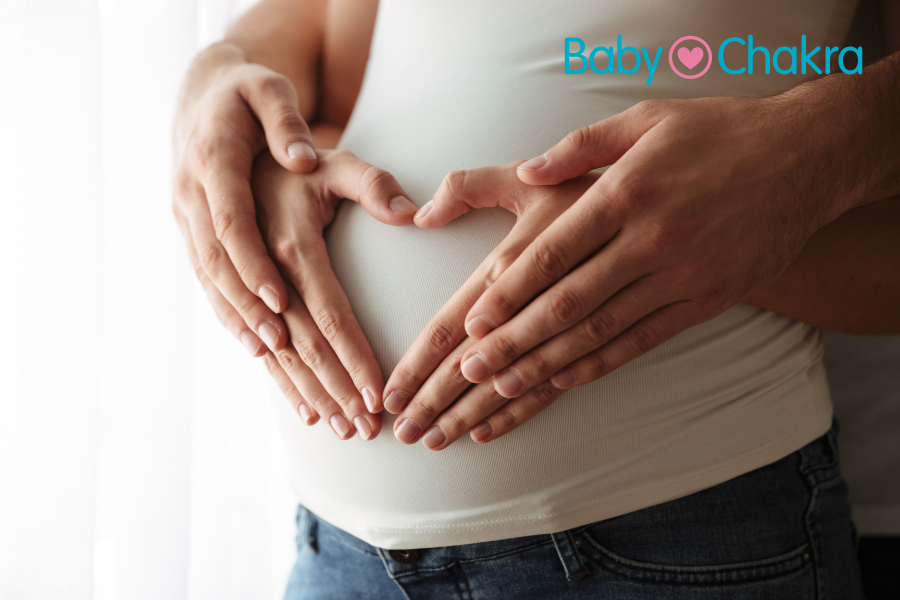
Everything You Need To Know About Getting Pregnant At 40
21 Nov 2022 | 4 min Read
Sudeshna Chakravarti
Author | 799 Articles
Are you planning to get pregnant at 40, but are unsure of your decision? If yes, then you have come to the right place, in this post, we discuss all the advantages and disadvantages of getting pregnant at 40, health conditions to consider, and treatment methods to help you conceive. We also discuss how age affects your fertility, and what can you expect from your pregnancy at 40.
What are the Benefits?
Sometimes the benefits of having a baby later in your life can outweigh those of having children when you are in your 20s or 30s. For one, you might have already established your career by this time and can dedicate more time toward raising your little ones. Plus, you will be more financially stable too, and will be able to provide better resources to your munchkins.
Is Getting Pregnant at 40 Considered Risky?
Due to advances in reproductive technology, fertility treatments, pregnancy, and delivery, you can now safely have a baby, even at the age of 40. However, despite these medical advances, any pregnancy after the age of 40 is considered risky. So if you plan to get pregnant after the age of 40, your healthcare provider will monitor you and your baby closely due to the following reasons.
- Gestational diabetes
- High blood pressure (which may increase the risk of a pregnancy complication called preeclampsia)
- Birth defects, such as down syndrome
- Low birth weight
- Miscarriage
- Ectopic pregnancy (which sometimes occurs in an IVF-assisted pregnancy)
How Does Age Affect Your Fertility?
A woman’s fertility rate significantly decreases after 35 years of age. Due to this, you may experience fertility issues and have trouble conceiving. Moreover, after 35 years of age, your egg quality decreases, and you may also experience the following conditions.
- Increased risk of miscarriage
- A significant drop in your egg reserve
- Higher chances of health conditions that impede fertility
- Unhealthy eggs
- Ovaries can’t release eggs properly
How to Conceive at 40?
It can take some time for you to get pregnant naturally, regardless of your age. But if you are over 40 years of age, and have been unsuccessful in conceiving naturally for over six months, then it’s best to consult a fertility specialist.
A fertility specialist will run various physical and lab tests to determine the various factors affecting your ability to get pregnant. These may include a blood test to check your ovarian reserve, or an ultrasound to get a clear view of your ovaries and uterus. If your fertility specialist confirms infertility, then they may recommend the following treatment methods to help you conceive.
- Fertility medications: These medications can help balance your hormones and assist with successful ovulation.
- Assisted Reproductive Technology (ART): This medical procedure works by removing your eggs and fertilising them in a lab, before inserting them back into your uterus. Assisted reproductive technology may work for those with ovulation issues, and also women suffering from conditions like PCOS and endometriosis. One of the most common ART methods is called In Vitro Fertilisation (IVF).
- Intrauterine insemination (IUI): This method is also referred to as artificial insemination, and works by injecting sperm into the uterus. IUI is especially helpful if the male has been diagnosed with infertility.
What Will Your Pregnancy at Age 40 Be Like?
Just as statistically it is difficult for you to conceive after the age of 40, pregnancy itself can be challenging too, with increasing age. You may experience more aches and pains as your muscles and joints already lose some mass, and you may also be more susceptible to gestational diabetes and high blood pressure. Pregnancy-related fatigue and exhaustion may also be more pronounced as you get older.
It’s important to discuss your health with your ob-gyn, and how to manage your symptoms based on your age and overall medical history.
How Does Age Affect Your Labour and Delivery?
You are less likely to have a vaginal delivery after the age of 40. This is primarily because fertility treatments may increase the risk of premature birth and other pregnancy complications. You may also be at a greater risk of preeclampsia, which may require your doctor to conduct caeserean delivery.
Conclusion
Thanks to medical advances, getting pregnant at 40 has become a common occurrence and also leads to the birth of healthy babies. However, regardless of your age, if you haven’t been able to conceive naturally, even after trying for six months, then you should consult a fertility specialist, as you could have an underlying fertility problem that needs to be resolved medically.
Cover Image Credit: Freepik.com
A


Related Topics for you
Suggestions offered by doctors on BabyChakra are of advisory nature i.e., for educational and informational purposes only. Content posted on, created for, or compiled by BabyChakra is not intended or designed to replace your doctor's independent judgment about any symptom, condition, or the appropriateness or risks of a procedure or treatment for a given person.
